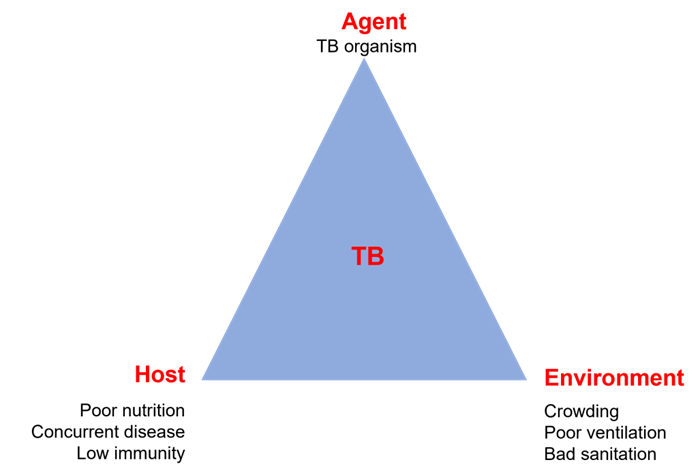The community health nurse is making a list of needed supplies in the event of a bioterrorism attack. The nurse recognizes that community members exposed to anthrax will need access to which of the following medications?
Fluconazole (Diflucan)
Ciprofloxacin (Cipro)
Varenicline (Chantix)
Potassium iodide (KI)
The Correct Answer is B
Choice A reason: Fluconazole (Diflucan) is an antifungal medication that is used to treat infections caused by fungi, such as candidiasis, cryptococcosis, and histoplasmosis. It is not effective against anthrax, which is a bacterial infection caused by Bacillus anthracis.
Choice B reason: Ciprofloxacin (Cipro) is an antibiotic medication that belongs to the class of fluoroquinolones. It is used to treat various bacterial infections, including anthrax. It works by inhibiting the DNA synthesis of the bacteria and preventing them from multiplying. Ciprofloxacin is one of the recommended medications for post-exposure prophylaxis and treatment of anthrax, according to the Centers for Disease Control and Prevention (CDC).
Choice C reason: Varenicline (Chantix) is a medication that is used to help people quit smoking. It works by blocking the effects of nicotine on the brain and reducing the cravings and withdrawal symptoms. It has no role in the prevention or treatment of anthrax.
Choice D reason: Potassium iodide (KI) is a medication that is used to protect the thyroid gland from radioactive iodine in the event of a nuclear or radiological emergency. It works by saturating the thyroid with non-radioactive iodine and preventing it from absorbing radioactive iodine. It has no role in the prevention or treatment of anthrax.

Nursing Test Bank
Naxlex Comprehensive Predictor Exams
Related Questions
Correct Answer is D
Explanation
Choice A reason: Natural history of disease is not an approach that explains the factors that allow the reproduction and spread of infectious disease. Natural history of disease is a concept that describes the progression and outcome of disease in the absence of any intervention. It includes stages such as susceptibility, exposure, incubation, prodrome, clinical, recovery, disability, or death.
Choice B reason: Health promotion is not an approach that explains the factors that allow the reproduction and spread of infectious diseases. Health promotion is a process that enables people to increase control over and improve their health. It involves strategies such as education, advocacy, policy, or community development.
Choice C reason: Levels of prevention is not an approach that explains the factors that allow the reproduction and spread of infectious disease. Levels of prevention is a framework that classifies different types of interventions based on their timing and purpose. It includes primary prevention (before disease occurs), secondary prevention (early detection and treatment), and tertiary prevention (reducing complications and disabilities).
Choice D reason: Epidemiologic triangle is an approach that explains the factors that allow the reproduction and spread of infectious disease. Epidemiologic triangle is a model that identifies three essential components of an infectious disease: agent (the microorganism that causes the disease), host (the person or animal that is infected), and environment (the physical, biological, or social factors that influence the transmission). The interaction and balance among these components determine the occurrence and spread of an infectious disease.

Correct Answer is ["A","C","E"]
Explanation
Choice A reason: The integumentary system is a portal of entry for anthrax because the bacteria can enter through cuts or abrasions on the skin. This is called cutaneous anthrax, and it is the most common and least deadly form of anthrax infection.
Choice B reason: The endocrine system is not a portal of entry for anthrax because the bacteria do not affect the glands or hormones of the body. The endocrine system is mainly involved in regulating metabolism, growth, development, and reproduction.
Choice C reason: The central nervous system is a portal of entry for anthrax because the bacteria can spread to the brain and spinal cord from other parts of the body. This is called meningeal anthrax, and it is a rare and fatal complication of anthrax infection.
Choice D reason: The renal system is not a portal of entry for anthrax because the bacteria do not infect the kidneys or urinary tract. The renal system is mainly involved in filtering waste products and excess fluids from the blood.
Choice E reason: The respiratory system is a portal of entry for anthrax because the bacteria can be inhaled into the lungs. This is called inhalation anthrax, and it is the most deadly form of anthrax infection.

Whether you are a student looking to ace your exams or a practicing nurse seeking to enhance your expertise , our nursing education contents will empower you with the confidence and competence to make a difference in the lives of patients and become a respected leader in the healthcare field.
Visit Naxlex, invest in your future and unlock endless possibilities with our unparalleled nursing education contents today
Report Wrong Answer on the Current Question
Do you disagree with the answer? If yes, what is your expected answer? Explain.
Kindly be descriptive with the issue you are facing.
